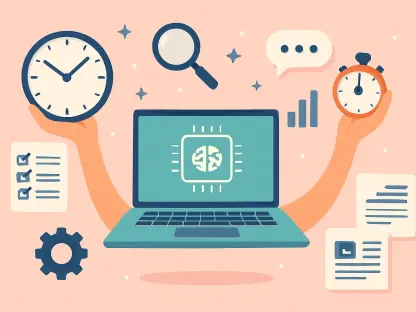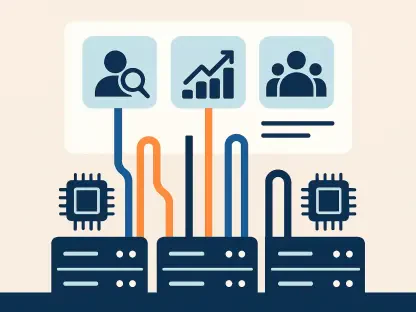Artificial intelligence (AI) has rapidly permeated human resources (HR) departments, fundamentally transforming hiring practices and talent management while introducing complex security considerations. Yet, a gap between AI integration and security readiness poses significant risks. High-profile reports reveal most organizations are unsure of their AI data security effectiveness, despite reliance on AI for key HR functions. This highlights an urgent need for robust security strategies tailored for HR applications to mitigate vulnerabilities associated with sensitive employee data.
Industry Overview
The adoption of AI technology in HR has become ubiquitous, enabling streamlined recruitment processes, enhanced performance management, and data-driven decision-making. This shift is fueled by technological advancements as AI becomes instrumental in HR operations, facilitating efficient workflows and deep analytical insights. Key players in this arena include tech giants like IBM and Microsoft, as well as innovative firms like Cornerstone and Greenhouse, which provide specialized HR solutions. While AI enhances HR capabilities, it also faces scrutiny under regulatory frameworks that guide data privacy and ethical use, such as GDPR in Europe and evolving AI-specific legislation globally.
Industry Trends and Projections
Key Trends Shaping HR AI
Emerging trends paint a picture of AI’s growing influence in HR, where organizations increasingly prioritize AI-powered tools to elevate efficiency and accuracy. Innovations, such as skill assessments powered by AI and smart candidate screening, demonstrate potential to revolutionize recruitment processes. Moreover, organizational practices are evolving with AI, optimizing talent management through sophisticated performance evaluation platforms and predictive analytics that align employee capabilities with business objectives.
Market Performance and Predictions
Over recent years, the HR AI market has exhibited robust growth, propelled by increased demand for automation and data analytics tools. Market analysts project continued growth from 2025 to 2027, with sectors like recruitment automation and employee engagement solutions experiencing heightened expansion. Economic forecasts suggest sustained investment in AI technology, based on its proven returns in enhancing productivity and strategic workforce alignment.
Challenges and Solutions
While HR departments reap AI’s benefits, numerous challenges hinder widespread adoption. Data breaches and vulnerabilities of “Shadow AI”—undeclared AI applications hidden within organizations—pose formidable risks. These concerns necessitate comprehensive governance frameworks to oversee AI implementations. Strategies to combat these challenges include reinforcing cross-departmental collaboration between HR, IT, and security teams to establish robust data protection measures and transparency in AI tools usage. Streamlined HR processes and vigilant oversight can mitigate these risks, strengthening organizational trust and data security.
Regulatory and Compliance Considerations
The regulatory landscape presents complex hurdles that organizations must navigate when integrating AI into HR functions. Compliance with laws like GDPR necessitates stringent data protection and ethical AI usage guidelines. Adhering to these standards requires proactive compliance planning and continuous monitoring to ensure AI tools align with regulatory requirements. Organizations must remain vigilant to adopt practices that protect both employee data and the integrity of AI applications while addressing evolving regulatory demands.
Future Outlook
Looking ahead, AI’s role within HR departments is poised for further evolution, driven by advances in machine learning and data analytics. Future disruptors will likely focus on real-time data processing and integration of AI with augmented reality technologies to further refine HR management practices. Organizations will benefit from these technologies through enhanced real-time insight, automated decision-making processes, and improved employee engagement strategies. Emphasizing resilient security frameworks alongside these advancements will be key to leveraging AI while safeguarding sensitive data.
Conclusion
Utilizing AI in HR offers transformative potential yet demands stringent security governance to protect sensitive information. An extensive review recognizes actionable strategies, including fortified collaboration between HR, IT, and security teams to fortify AI security measures and bridge existing gaps in data protection. As AI continues to evolve, innovative solutions within the HR sector promise enhanced operational efficiency and employee engagement, contingent upon robust security frameworks that safeguard organizational integrity amidst growing digital threats.









